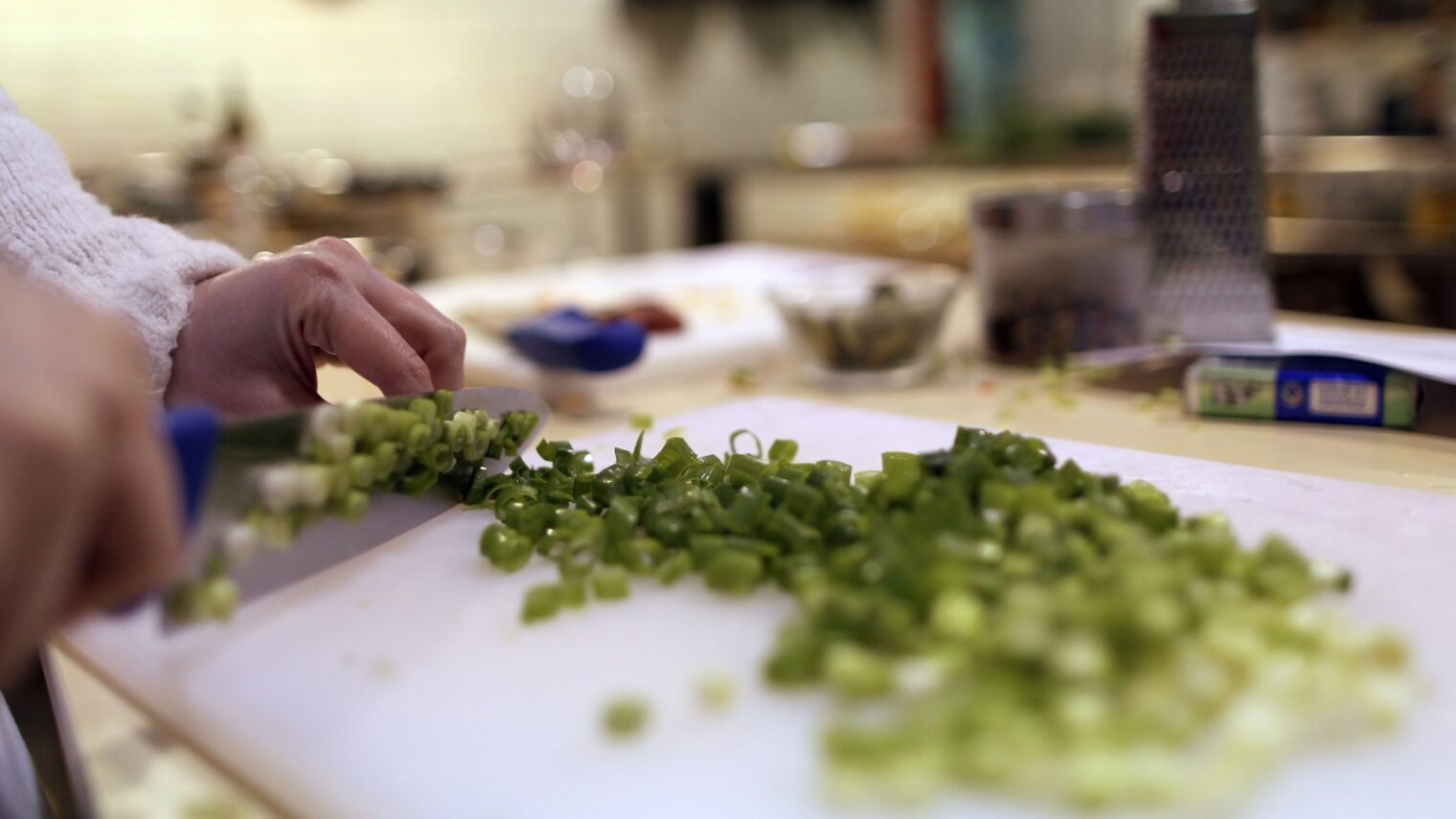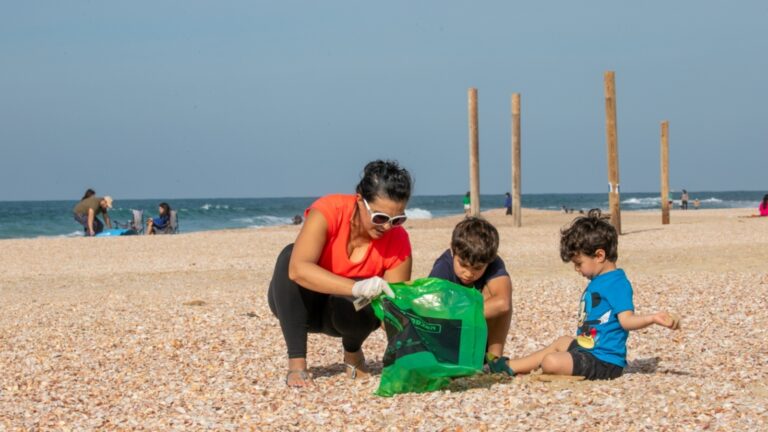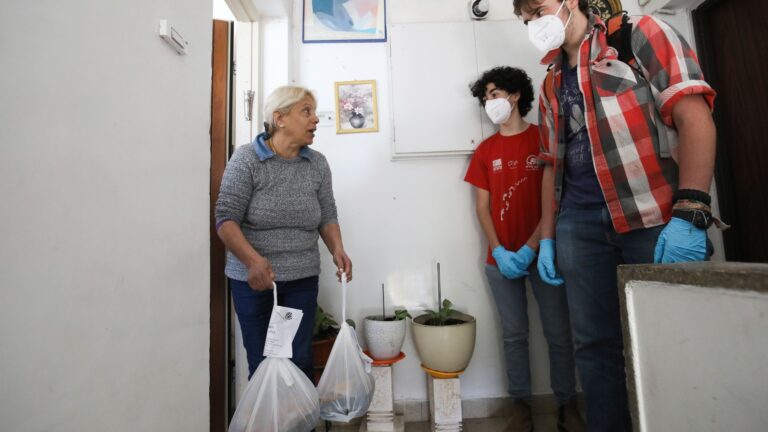Too many fried and processed foods, too much sugar and fat – these dietary pitfalls are common to many people on a tight budget everywhere, including both Jews and Bedouin Muslims living in Israel’s Negev desert.
Leket Israel, a national food bank and food recovery organization, had the innovative idea of offering a nutrition workshop for mothers from both populations, led in Hebrew and Arabic by a dietician from each culture.
“We do workshops on a regular basis all around Israel to give needy populations tools to help them improve nutrition and make healthier food choices on a low budget,” says Leket Israel’s in-house nutritionist, Smadar Hod Ovadia.
“This specific workshop is the first time we’re doing a mixed Jewish and Bedouin group. I thought it would be a good idea not only to have a mixed audience but also the two dieticians, Dana Ivankovsky and Eman Alsane, delivering tips and ideas for grocery shopping and preparing nutritious food on a limited budget to make positive changes in their families’ health.”
The meeting took place on August 7 at Beer Sova in Beersheva, the south’s largest nonprofit food organization and one of the partners to which Leket Israel provides rescued cooked food and rescued produce for its food baskets and soup kitchen.
Alsane, 27, lives in the Bedouin city of Rahat and is one of only two licensed Bedouin nutritionists in Israel. She interned with the Ministry of Health and now provides nutritional counseling in a Clalit health clinic in Rahat.
“Some of the traditional foods we consume daily in the Bedouin community are high in sugar and fat, leading to obesity, diabetes and a lot of chronic diseases,” Alsane tells ISRAEL21c. “I grew up with this kind of unhealthy food at home and in school. I see that we have a lot of work to do in teaching different techniques for cooking.”
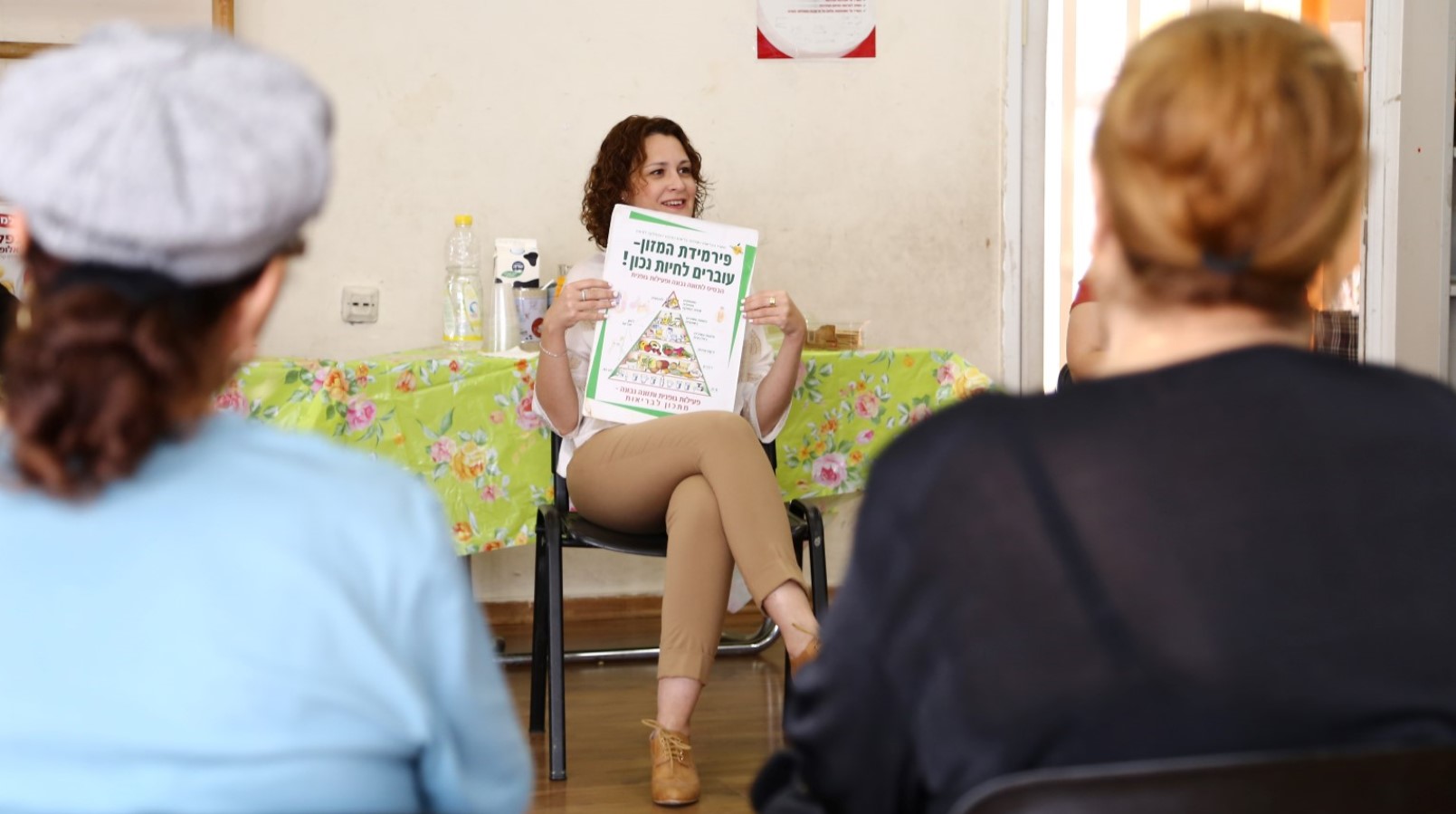
Although all participants are clients of Beer Sova and were invited based on their interest in the joint session, there was some social awkwardness at first, Alsane says.
“It’s an uncommon situation, so for the first couple of minutes you saw the women of each group sitting away from the others. But at the end of the workshop they were cutting vegetables and cooking together, and we were all sharing opinions.”
Under the supervision of Alsane and Ivankovsky, the women prepared a breakfast of dishes including fresh vegetables, cheese, tuna and eggs. They were encouraged to ask questions about one another’s cuisine.
“The idea is to bring the two groups together over the changes they can make and to learn from one another,” says Ovadia. “The Bedouin have some good traditional eating habits using produce they grow, and the Jewish tradition has some good habits, so we empower them to continue the good ones and change those that need changing.”
Food connects people
Ovadia says food is a connection point. “People relate to food and cooking regardless of their socioeconomic status. I sometimes open a session by asking what people ate for breakfast, and it kicks off a lively discussion.”
Among the tips Elsane gave mothers in the workshop were to do less frying, to measure the amount of oil they use and to cook only with plant oils rather than margarine and butter.
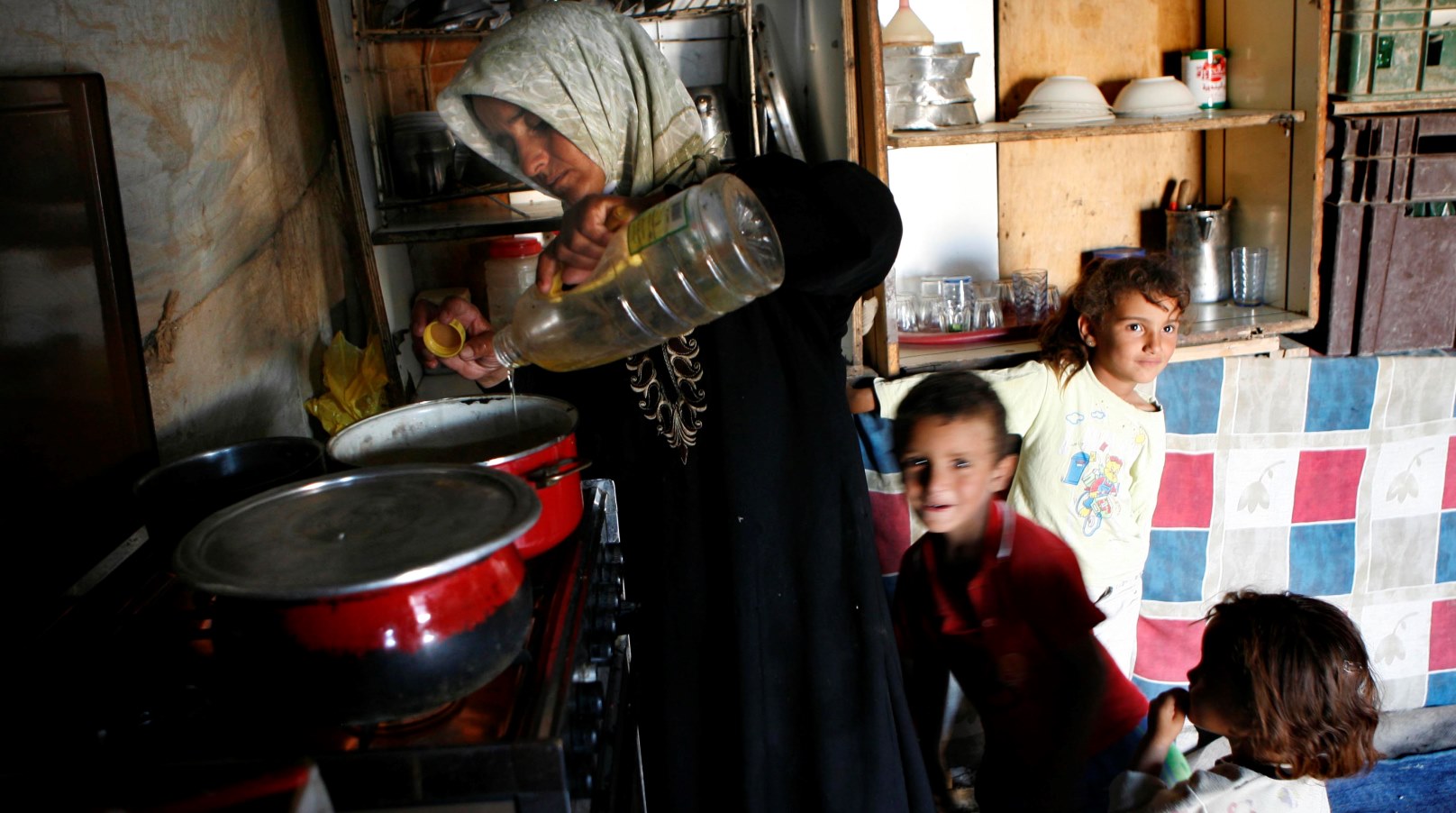
“I also advised them to keep children away from fast food like pizza and burgers that are very bad for them, and to prepare healthy sandwiches for the children instead of the falafel or shawarma they get in school.”
The nutritionists found that in both communities, especially among Bedouin girls and women, people tend to forget to drink enough water. “We suggest that they make drinking water more interesting by adding fruit slices or mint leaves,” says Alsane.
Ovadia says a follow-up survey is conducted six months after all Leket nutrition workshops to see if the new habits have taken hold.
“We phone participants to evaluate the impact of the workshops. We have been surprised to find that about half the participants have managed to change their eating habits, for example adding more fruits and vegetables, consuming less sugary beverages, and eating breakfast,” she says.
A Leket Israel spokeswoman said the organization “will continue to explore and find ways that it can lead other joint Jewish and Bedouin women nutrition workshops. As mothers, they all want to help better the lives of their children and provide them with nutritious food to lead a healthier lifestyle.”




